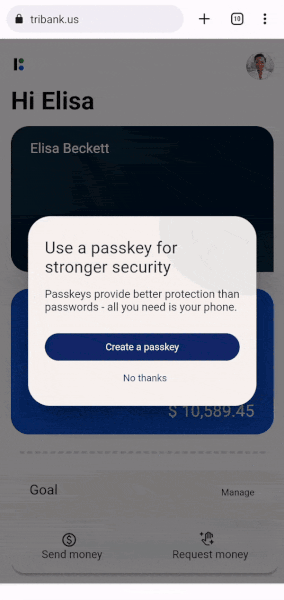This week, Google added a new secure, passwordless login standard to the stable version of Chrome 108. These are so-called passkeys, which are a more secure alternative to passwords. Such a key is never actually transmitted to the site, it is generated when trying to log in and does not leave the device.
The new feature now works in Chrome on both Windows 11 and macOS computers and Android mobile devices. In the nearest plans to transfer it to iOS and Chrome OS. In addition, Google also allows you to sync your passkeys between devices through its built-in password manager or third-party programs like 1Password or Dashlane.
An access key is unique information that contains all the data necessary to identify a user. It is stored on a computer, smartphone, or physical USB security key. For sites and applications that support the corresponding API, it allows you to log in with a simple and quick identity verification combined with device biometrics or other secure authentication. At the same time, the key itself does not contain a password that can be stolen.

It works like this. When a user tries to sign in somewhere from a mobile device, the browser prompts for a passkey, generates a code, and requests biometric authentication as an additional security measure. On a computer, users will be prompted to connect to a nearby Android device to choose a password. An important feature of access key support in Chrome and other browsers is that sites gradually implement the WebAuthn API to accept them. Some large online services and online stores have already added the corresponding functionality.
Source: Trash Box
Charles Grill is a tech-savvy writer with over 3 years of experience in the field. He writes on a variety of technology-related topics and has a strong focus on the latest advancements in the industry. He is connected with several online news websites and is currently contributing to a technology-focused platform.







